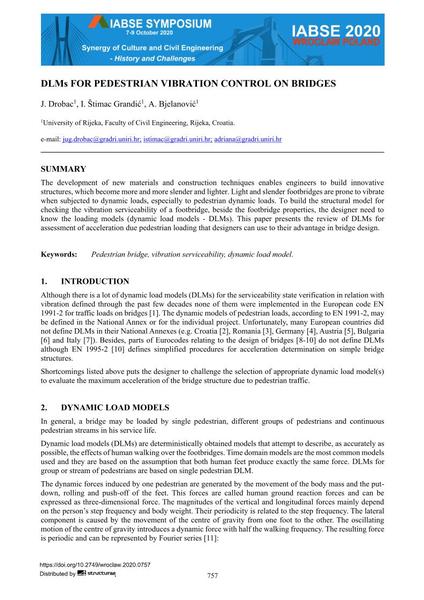DLMs for Pedestrian Vibration Control on Bridges

|
|
|||||||||||
Détails bibliographiques
| Auteur(s): |
J. Drobac
I. Štimac Grandić A. Bjelanović |
||||
|---|---|---|---|---|---|
| Médium: | papier de conférence | ||||
| Langue(s): | anglais | ||||
| Conférence: | IABSE Symposium: Synergy of Culture and Civil Engineering – History and Challenges, Wrocław, Poland, 7-9 October 2020 | ||||
| Publié dans: | IABSE Symposium Wroclaw 2020 | ||||
|
|||||
| Page(s): | 757-764 | ||||
| Nombre total de pages (du PDF): | 8 | ||||
| Année: | 2020 | ||||
| DOI: | 10.2749/wroclaw.2020.0757 | ||||
| Abstrait: |
The development of new materials and construction techniques enables engineers to build innovative structures, which become more and more slender and lighter. Light and slender footbridges are prone to vibrate when subjected to dynamic loads, especially to pedestrian dynamic loads. To build the structural model for checking the vibration serviceability of a footbridge, beside the footbridge properties, the designer need to know the loading models (dynamic load models - DLMs). This paper presents the review of DLMs for assessment of acceleration due pedestrian loading that designers can use to their advantage in bridge design. |
||||
| Mots-clé: |
passerelle piétonnne
|
||||
